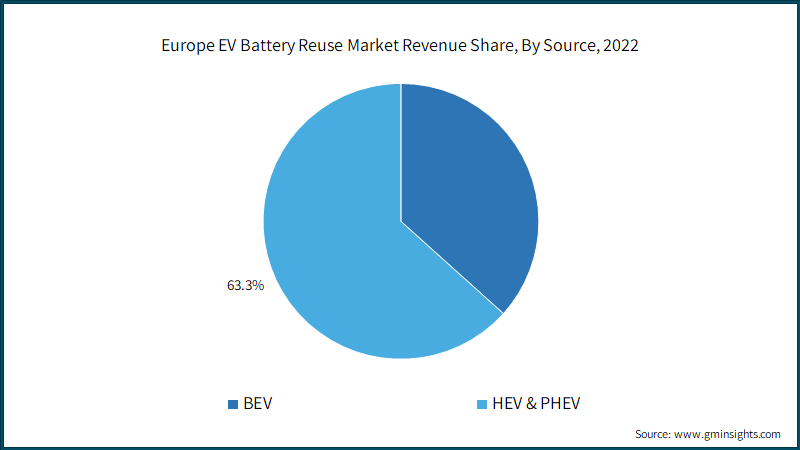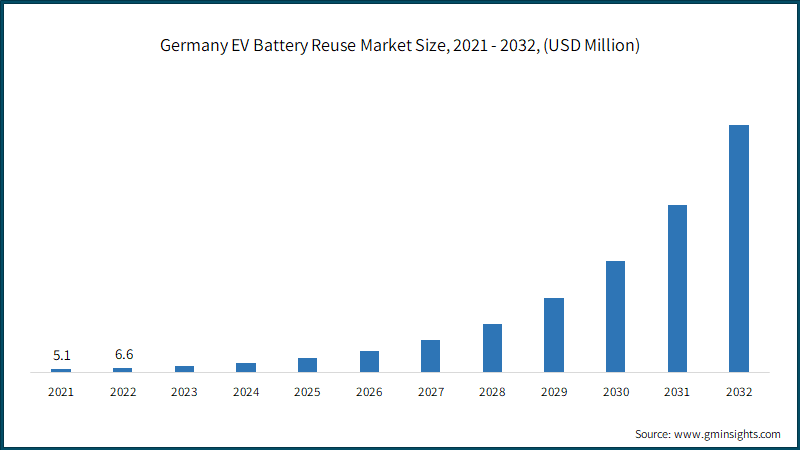Home > Energy & Power > Battery Technology > EV Battery Reuse > Europe EV Battery Reuse Market
Europe EV Battery Reuse Market Analysis
- Report ID: GMI6988
- Published Date: Oct 2023
- Report Format: PDF
Europe EV Battery Reuse Market Analysis
The energy storage applications is projected to experience a robust CAGR of over 55% through 2032. The repurposing of used EV batteries for energy storage brings several advantages that bolster its adoption. Firstly, it extends the lifespan of these batteries, optimizing the return on the initial investment and reducing the overall cost per unit of energy storage. Furthermore, this approach diminishes the demand for new battery production, curbing the consumption of valuable resources and energy, thereby reducing the environmental footprint. This alignment with circular economy principles and sustainable resource management is seen as a positive step towards efficient resource utilization.
Postponing the recycling of batteries is beneficial, as recycling processes can be complex and energy-intensive. By giving used batteries a second life, recycling demands are deferred, reducing the immediate necessity for recycling facilities. Moreover, repurposed EV batteries contribute to grid stability by storing excess renewable energy during low-demand periods and releasing it during peak periods, facilitating load balancing and grid stability, thus driving their adoption across Europe.

The BEV sources segment is set to exceed a market value of USD 900 million by 2032, driven by the expanding adoption of battery electric vehicles (BEVs) in response to stringent emission control regulations. A notable feature of BEV batteries is their extended lifespan, often outlasting the vehicles themselves. When these batteries are retired from automotive applications due to diminished capacity, they retain substantial energy storage potential, rendering them highly suitable for second-life applications.
The increasing demand for energy storage solutions, both at grid-scale and distributed levels, presents a robust market opportunity for repurposing BEV batteries. These batteries can play a pivotal role in bolstering grid stability, harmonizing energy supply and demand, and facilitating the integration of renewable energy sources. Moreover, reusing BEV batteries aligns with sustainability goals by prolonging the life of valuable battery components. This practice curtails the requirement for new battery production and contributes to reducing the environmental footprint associated with battery manufacturing.

The Germany EV battery reuse market is anticipated to attain 49% growth rate till 2032, on account of the country’s significant inventory of lithium-ion batteries. The country's commitment to sustainability and environmental responsibility aligns with the concept of reusing these batteries to extend their life cycle, reduce waste, and minimize the ecological footprint of EV technology. Furthermore, Germany's expanding renewable energy sector, characterized by intermittent energy production from sources like wind and solar, creates a growing demand for efficient energy storage solutions. The German government's supportive policies, incentives, and funding for sustainable practices and clean energy technologies further boost the adoption of EV battery reuse in Germany.

